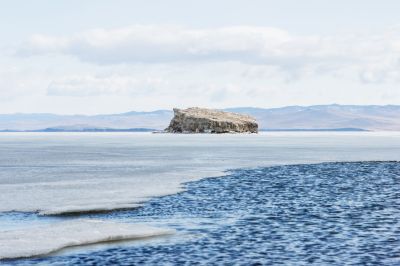King’s is overseeing the White Mars Analogue Study on The Standard
Chartered Trans-Antarctic Winter Traverse, which will examine how
extreme environments affect human physiology.
The study, organised by King’s alumnus Dr Alexander Kumar, and Dr
Mike Stroud (OBE), University of Southampton, is the first of its kind
to use a hostile environment on earth to simulate conditions in space.
In December members of the expedition team, including Sir Ranulph
Fiennes Bt OBE, Brian Newham, and Dr Robert Lambert, undertook a series
of tests at King’s Centre of Human & Aerospace Physiological
Sciences. The tests measured their fitness, body composition, muscle
strength and immune function. Further tests will be carried out during
the expedition, before being repeated once more when the team returns.
Led by Brian Newham, the expedition team will travel from Crown
Bay to Captain Scott’s base at McMurdo Sound, via the South Pole. During
this six-month period the expedition team will travel 2,400 miles in
temperatures approaching -90°C and in near permanent darkness. They will
also encounter altitudes of approximately 3200 metres, allowing study
of the body’s response to significantly low atmospheric pressure, while
the exposure to extreme cold will provide further research
opportunities.
Professor Steve Harridge, Director of the Centre of Human &
Aerospace Physiological Sciences at King’s, said: ‘We are constantly
looking for analogues – environments which mimic a trip to Mars,
including the journey there, the planet itself and the journey back.
‘We hope that important information will be obtained from this
study, which will increase our understanding of the limits of human
performance, and in particular those which may be relevant for future
trips to Mars.’
Dr Alexander Kumar said: ‘I look forward to conducting what may
be one of the most extreme, interesting and unique analogue studies ever
conducted, which may provide interesting answers to the many challenges
associated with sending a manned mission to Mars and seeing it safely
return.’
Sir Ranulph Fiennes, Expedition Co-Leader, was forced to pull out
of the traverse at the end of February and has returned to the UK for
medical treatment for frostbite on two fingers. However, this offers
important insights for the White Mars Analogue Study, according to Dr
David Green, Senior Lecturer of Human & Aerospace Physiology at
King’s, who is conducting a series of tests on the effects of extreme
cold on skin sensation and motor performance in the hand. He explained:
‘The conditions facing the expedition team, where the ability to conduct
fine motor tasks with the hands is critical to survival, are not unlike
those posed by a space mission. When performing tasks outside of the
spacecraft, astronauts have to contend with low atmospheric pressure and
extreme cold – either by absence of sunlight or the restriction of
blood-flow caused by spacesuits.’
Sir Ranulph Fiennes continues to support the expedition by
fundraising for ‘Seeing is Believing’ and promoting awareness of the
expedition.
He said: ‘Today my colleagues begin what will be a significant
and life-changing challenge. They are the first people ever to try to
cross the Antarctic continent during the polar winter – it is a huge
feat of exploration and daring.
‘I have spent five long years planning, organising and
masterminding the expedition, which I have now put into the capable
hands of Brian Newham, the new Expedition Leader. We’ve had messages of
support from all around the world and from all sorts of people – from
HRH The Prince of Wales, Royal Patron of The Coldest Journey, to Joanna
Lumley, a trustee of the expedition.
‘It is a fantastic adventure and I am sure that it will succeed.
Whilst the team are out there on the ice making history, I am proud to
be here doing all that I can for the expedition and for Seeing is
Believing, which is an incredibly worthy charity.
‘I wish the team the very best of luck and will be following their progress closely.’
Source: King's College Londyn













































